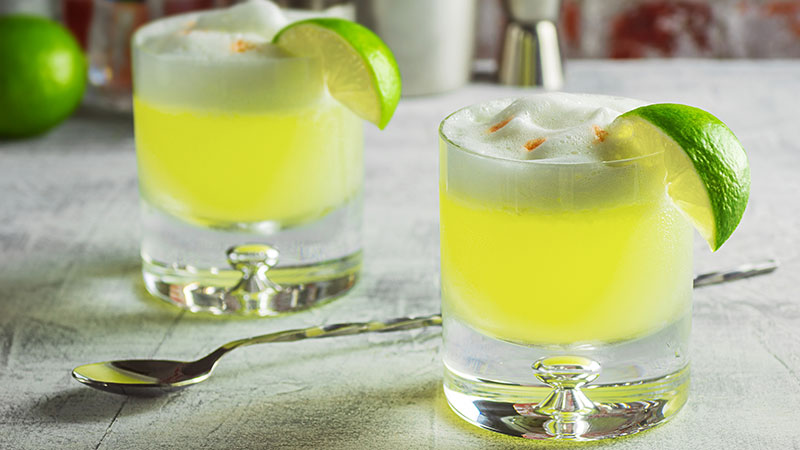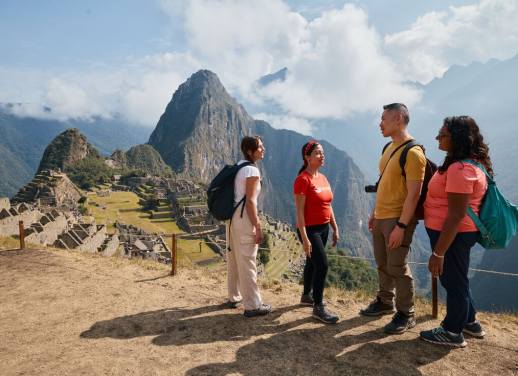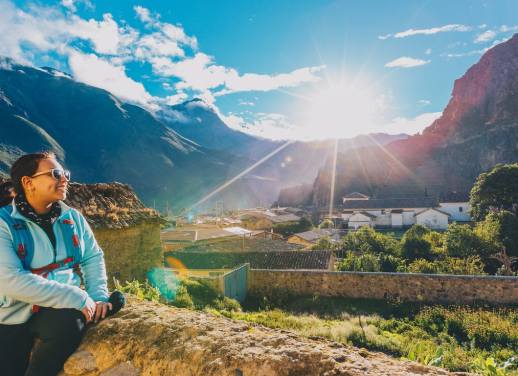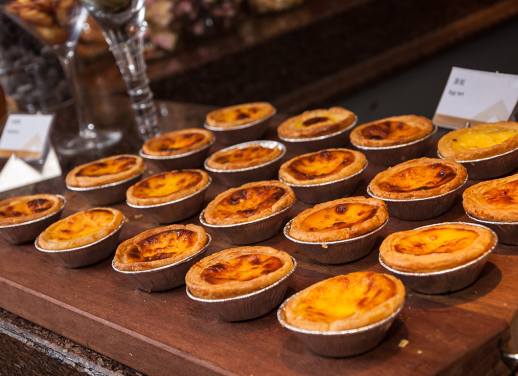On the first Saturday of February each year, something rather odd takes place in Lima, Peru. The fountain in the main square stops spraying the sort of water for which Imodium was invented, and instead sprays out pure, undiluted, delicious Pisco Sours. This sounds like some Peruvian prank, but it’s 100% true. You just tap a mug, hold it in the fountain, then get happily Pisco’d with a few thousand jubilant Peruvians.
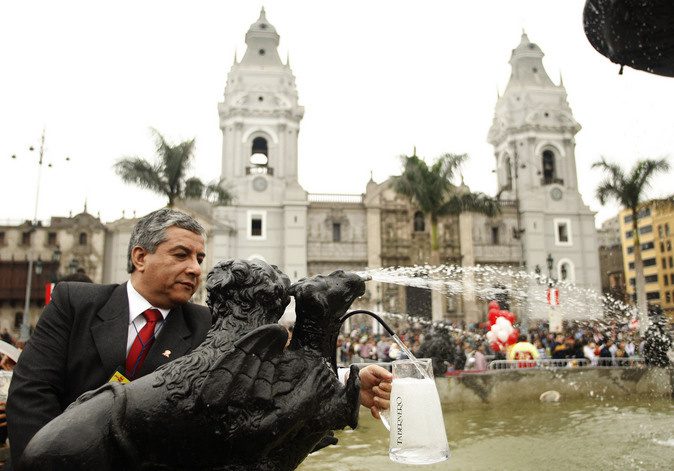
National Pisco Day in all its glory. Image c/o REUTERS, Enrique Castro-Mendivil
This is one of two days a year (two!) that the country gives over to celebrating its national beverage. There’s National Pisco Day, usually held in early February, and Pisco Sour Day, the last Sunday in July.
So what is a Pisco Sour? And why do people get so obsessed with it? And where the hell do you drink it anyway? Here’s our foolproof guide.
Pisco’s shadowy backstory
For a drink with such a cult following, you expect some dramatic origin tale, possibly involving a Peruvian goddess, a few conquistadors and a sacred llama. But it was actually an American bartender in 1920s Lima, Victor Morris, who patented the idea. The recipe was refined over the next few years – Angostura bitters and egg whites (classic elements of a Peruvian sour) were added.
The twist is that Chile, right next door, claims to have invented the cocktail too. There’s a bit of Latin tension over this origin story, which is why both countries have their own version of the base liquor, Pisco, and their own recipes (in Chile they ditch the eggs and use pica limes).
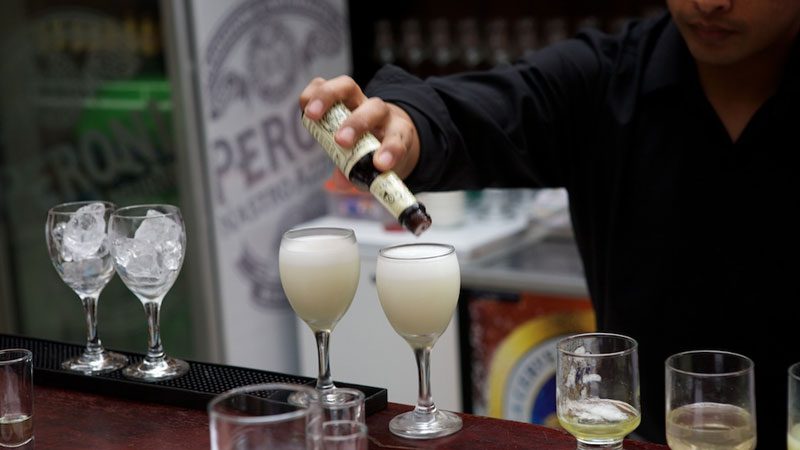
Image c/o Scott Kua, Flickr
How to make a Pisco Sour
The good news is that if you visit Peru and get a hankering for Pisco Sours at home, they’re a) available and b) easy to make. You should be able to grab yourself a bottle of Pisco in most good liquor outlets. Here’s what you need:
Ingredients
1 egg white
73ml of Pisco
14ml of basic sugar syrup
22ml of lime juice
A dash of Angostura bitters
Method
Mix the ingredients in a shaker. Shake it all up for about 20 seconds, then strain into a cocktail glass. Finish with a few drops of bitters.
Regional variations
The recipe above makes a classically Peruvian Pisco. And for cocktail nerds, there is a big difference. Peru’s Pisco tends to be made in small batches in a pot still and un-aged, which gives it a sort of grappa taste. Chile’s Pisco on the other hand is more mass-produced, and aged in wood, which makes it more like a very light cognac.
If you want to try the Chile version, just minus the egg whites and the bitters from the above. Subtle difference, but it’ll make you at least 15% more of a liquor snob when you explain to people what you’re doing, and that’s always fun.
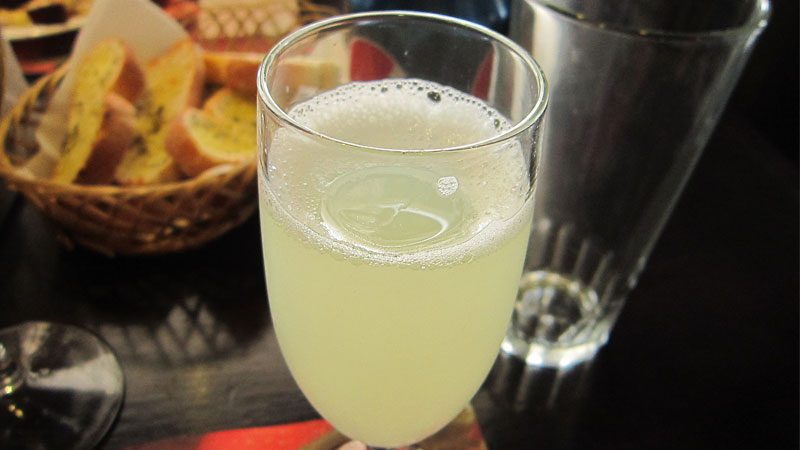
Image c/o Guitarclas Blog, Flickr
Where to get it
Lima is the undisputed capital of the Pisco Sour (especially if you ask a Peruvian, not a Chilean), so start your search there. Here are a few of the best bars in town for sampling the country’s classic cocktail.
The Gran Hotel Bolivar
Hemingway himself is said to have enjoyed a Pisco Sour (or seven) at this historic bar. You’ll find it in the city’s gorgeous Plaza San Martin, and make sure to order your drink in the hotels infamous Catedral glass (twice the size of the normal one).
Ayahuasca Bar
A spot to visit if you want to sample some of the Pisco Sour’s more unorthodox variations. There’s the classic Pisco of course, but also some mixes that use coca leaves or even pineapple. The locations good too: set a few streets back from Playa Barranco, near some of the neighborhood’s best restaurants.
Amaz
If you’re after a cracking dinner with your Pisco Sour, drop in at chef Pedro Miguel Schiaffino’s restaurant Amaz. It’s one of the hottest dining ticket in town, mostly because Pedro showcases one of the country’s most obscure cuisines: the native dishes of the Peruvian Amazon. The Piscos are different too: made not with limes but with the juice of the native araza fruit.
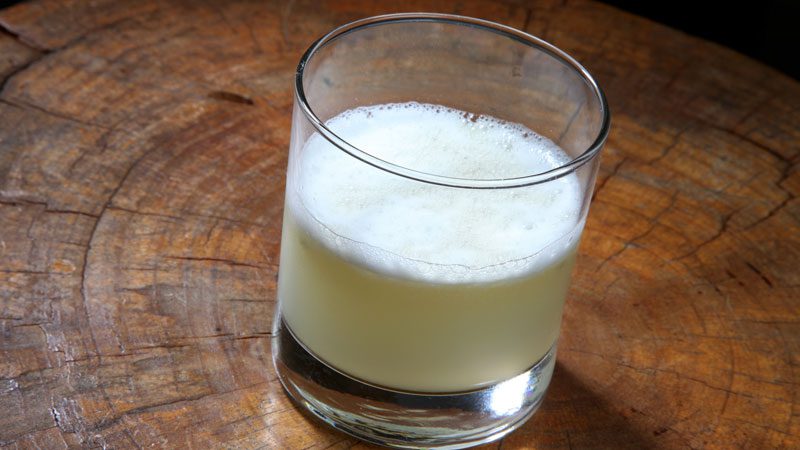
Image c/o Californian Avocados, Flickr
Learn Pisco from the pros
If you’re passing through Cusco and you want to learn from some of the best, try our Urban Adventures Pisco Sour tour. You’ll start by collecting your ingredients from the local market, then learn the art of the perfect Pisco from one of the city’s best bartenders.
Thirsty for travel? Try our Real Food Adventure in Peru.

